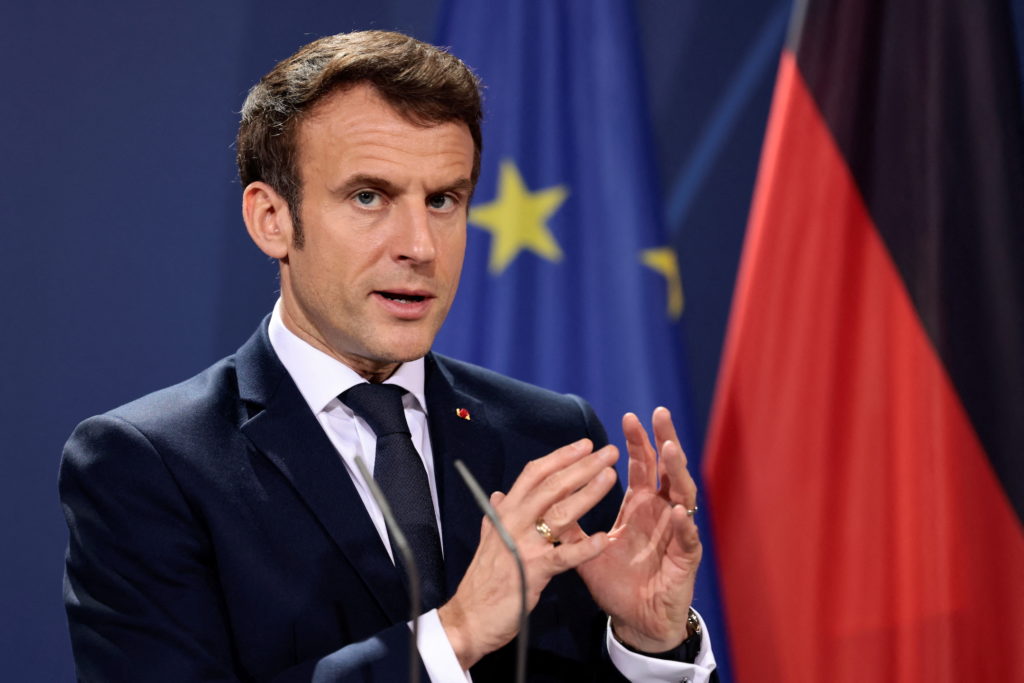France-Poland Friendship Treaty: Macron Announces Signing Next Month

Table of Contents
Key Provisions of the France-Poland Friendship Treaty
The France-Poland Friendship Treaty is poised to be a comprehensive agreement covering several key areas of bilateral cooperation. Its core aim is to forge a deeper and more strategic partnership between the two nations, built on mutual trust and shared interests.
Enhanced Defense Cooperation
The treaty is expected to significantly bolster military collaboration between France and Poland, enhancing the security of both nations and strengthening NATO's eastern flank. This enhanced cooperation will manifest in several ways:
- Joint military exercises and training: Regular joint maneuvers will improve interoperability and enhance readiness.
- Increased intelligence sharing: A more robust information exchange will improve situational awareness and threat assessment.
- Potential deployment of French troops on Polish soil: This would represent a tangible demonstration of commitment to Poland's security and deter potential aggression.
- Collaborative development of defense technologies: Joint research and development will lead to more effective and cost-efficient defense systems. This could include areas like missile defense and cyber security.
Economic Partnerships and Trade
Beyond defense, the France-Poland Friendship Treaty aims to stimulate economic growth through strengthened bilateral ties. This includes:
- Increased bilateral trade and investment: Removing trade barriers and fostering investment opportunities will boost economic activity in both countries.
- Joint ventures in key sectors like energy and infrastructure: Collaborative projects will create jobs and stimulate innovation.
- Collaboration on technological innovation: Joint research and development initiatives will drive technological advancements in both countries.
- Support for small and medium-sized enterprises (SMEs): Facilitating cross-border collaboration for SMEs will unlock economic potential at a grassroots level.
Energy Security and Diversification
Given the current geopolitical climate and the importance of energy independence, the treaty will likely prioritize:
- Strengthening energy independence for both nations: Reducing reliance on volatile global energy markets and potentially hostile suppliers.
- Diversifying energy sources to reduce reliance on Russia: This includes exploring alternative energy sources such as renewable energy and nuclear power.
- Collaboration on renewable energy projects: Joint investment in wind, solar, and other renewable energy technologies.
- Joint investments in energy infrastructure: Improving energy infrastructure and grid resilience to enhance energy security.
Geopolitical Implications of the France-Poland Friendship Treaty
The signing of the France-Poland Friendship Treaty carries significant geopolitical implications, extending far beyond the bilateral relationship.
Strengthening NATO's Eastern Flank
The treaty is a strong signal of commitment to NATO's collective defense, particularly crucial in the context of growing Russian aggression towards Ukraine and increased tensions in the region. The enhanced defense cooperation will bolster NATO's eastern flank, providing a stronger deterrent against potential threats.
Countering Russian Influence
The enhanced cooperation between France and Poland directly challenges Russia's influence in Central and Eastern Europe. This strengthened partnership provides a counterbalance to Russian assertiveness in the region and promotes a more stable geopolitical environment.
Impact on EU Relations
The treaty could influence the dynamics within the European Union, particularly concerning security and defense policies. It could potentially serve as a model for future cooperation agreements within the EU, fostering a stronger sense of collective security and defense.
Public Reaction and Future Prospects of the France-Poland Friendship Treaty
The success of the France-Poland Friendship Treaty hinges on public support and the ability to overcome potential challenges.
Public Opinion in France and Poland
Initial public reactions in both France and Poland appear largely positive, with widespread support for strengthening ties and enhancing security. However, detailed polling data and media analysis will provide a clearer picture of public sentiment as the treaty's specifics are released and implementation begins.
Challenges and Potential Obstacles
Despite the positive outlook, potential obstacles to the treaty's full implementation could arise. These may include bureaucratic hurdles, differing national interests on specific issues, or unforeseen geopolitical developments. Careful management and open communication will be crucial to navigate these potential challenges.
Long-term Implications
The long-term impact of the France-Poland Friendship Treaty could be profound. It promises a deeper strategic partnership between France and Poland, strengthening security in Central Europe and influencing the broader European geopolitical landscape. It could also serve as a model for similar partnerships within the EU, promoting greater integration in security and defense.
Conclusion
The signing of the France-Poland Friendship Treaty marks a significant step toward strengthening bilateral relations and enhancing security in Central Europe. This landmark agreement promises closer cooperation in defense, economics, and energy, leading to a more stable and secure geopolitical landscape. The treaty's impact will undoubtedly be felt across Europe, influencing both regional and EU-wide policies. Stay informed about the developments surrounding the France-Poland Friendship Treaty as the signing date approaches and its full implications unfold. Close monitoring of the treaty's implementation and its effects on various aspects of Franco-Polish relations will be crucial to understanding its long-term impact.

Featured Posts
-
 Harry Styles Retro Mustache Makes A Statement In London
May 10, 2025
Harry Styles Retro Mustache Makes A Statement In London
May 10, 2025 -
 Dijon La 3e Ligne De Tramway Un Projet Valide Apres Concertation Metropolitaine
May 10, 2025
Dijon La 3e Ligne De Tramway Un Projet Valide Apres Concertation Metropolitaine
May 10, 2025 -
 The Benson Boone Harry Styles Comparison Fact Or Fiction
May 10, 2025
The Benson Boone Harry Styles Comparison Fact Or Fiction
May 10, 2025 -
 Europa League Preview Brobbeys Strength A Key Threat For Opponents
May 10, 2025
Europa League Preview Brobbeys Strength A Key Threat For Opponents
May 10, 2025 -
 New Strategy From Edmonton Unlimited Scaling Tech Innovation Globally
May 10, 2025
New Strategy From Edmonton Unlimited Scaling Tech Innovation Globally
May 10, 2025
